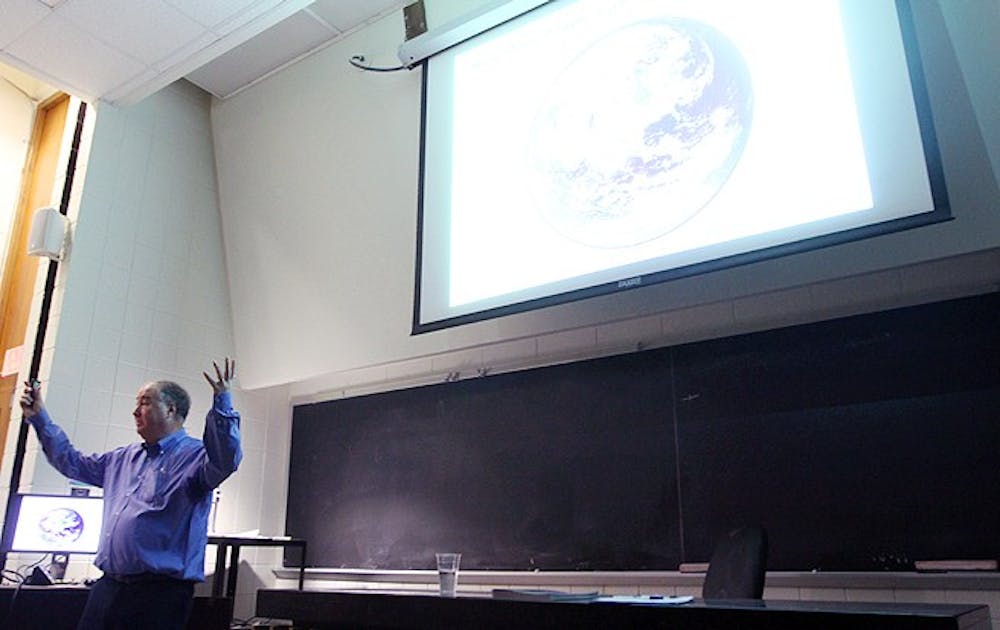Unbridled population growth can lead to numerous problems across the world, a leading researcher on the topic said.
John Seager, president and CEO of Population Connection, a nonprofit organization devoted to encouraging education on population growth, spoke to students Monday regarding the world’s increasing population. He noted that Population Connection’s goal is not to limit the population but to make people more aware of the challenges they are bound to face as the birth rate grows and the mortality rate decreases.
“Population growth is one of the preeminent challenges of our time,” Seager said. “We’re all kind of in this together on this planet.”
Seager said he was inspired to take up this cause when he realized how drastically the United States’ own population had decreased in such a short time period and how the same could be done for other countries.
At the time former President John F. Kennedy was inaugurated, American women had 3.4 children each, Seager noted. By the time former President Jimmy Carter was inaugurated, the average woman in the US had 1.7 children. Seager said this 50 percent drop in 16 years occurred due to increased access to birth control and improved resources for women. With this, Seager suggested more educated women would prefer, when given the choice, to have smaller families.
Freshman Santiago Bejarano, said he believed that Seager’s opinions were too broad to encompass every cultural group.
“I know, especially with Latinos and [Catholics] in general, larger families are seen as healthier families, as a sign of prosperity,” Bejarano said.
Freshman Allison Draper noted that some women—even when educated—have large families by choice.
“I have a friend who has eight kids in their family, and they’re not Catholic,” Draper said. “[Her mother] feels that God wants her to have all these kids in her life. She’s completely educated. She went to college.”
Seager also pushed the idea of birth control as one of the most successful and important innovations of the 20th century, citing its effects as giving women the right to choose what to do with their lives.
“For the first time, one half of the world is not dependent on the other half,” Seager said. “Women have the ability to control where their lives are going to go to.”
The idea that the development of birth control was the defining moment for female independence, though controversial, resonates with some. Draper sees both sides of the issue. For people in relationships, she says, birth control allows the woman to have a say in the size of her family without impacting the committed relationship with her partner.
“Women have the luxury of saying ‘I don’t want to have kids’ because when they have birth control, they at least have the choice” Draper said.
On the other hand, Draper noted that birth control alleviates some of the responsibility from the man and allows young women to be blamed for their accidental pregnancies, which can occur despite the use of birth control.
“It allows the man to say ‘Oh, you know, it’s not my fault,’ and brings to mind the story of the 17-year-old getting pregnant and having nowhere to go,” Draper said.
The question Seager is looking to answer is whether or not the planet can survive with the population rates as they are now. Although Population Connection educates young Americans on the problems associated with the world’s population growth, it does not take a stance on a solution.
“How many people can the Earth support?” asked Seager. “The answer is there is no answer.”
Get The Chronicle straight to your inbox
Signup for our weekly newsletter. Cancel at any time.

